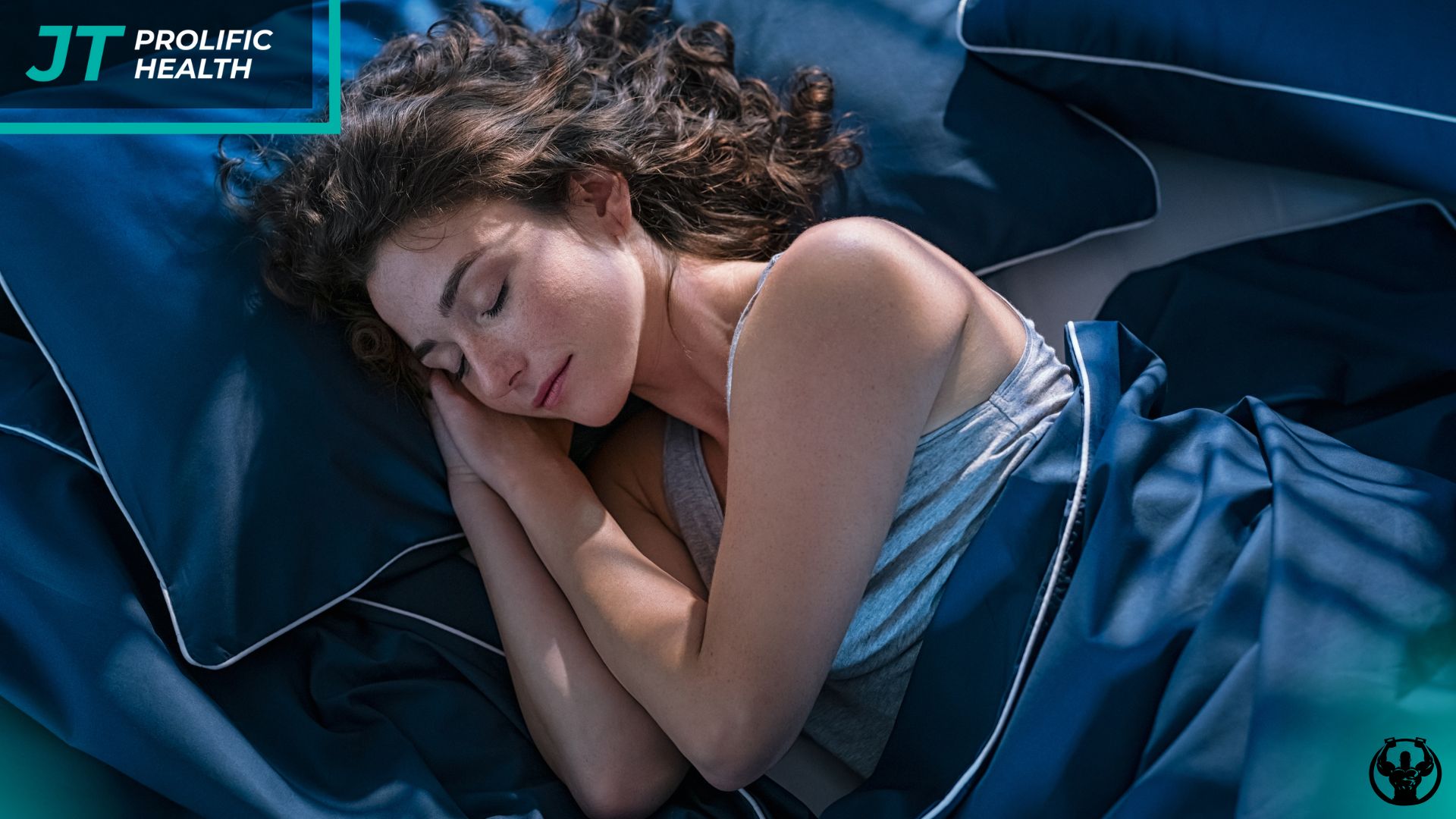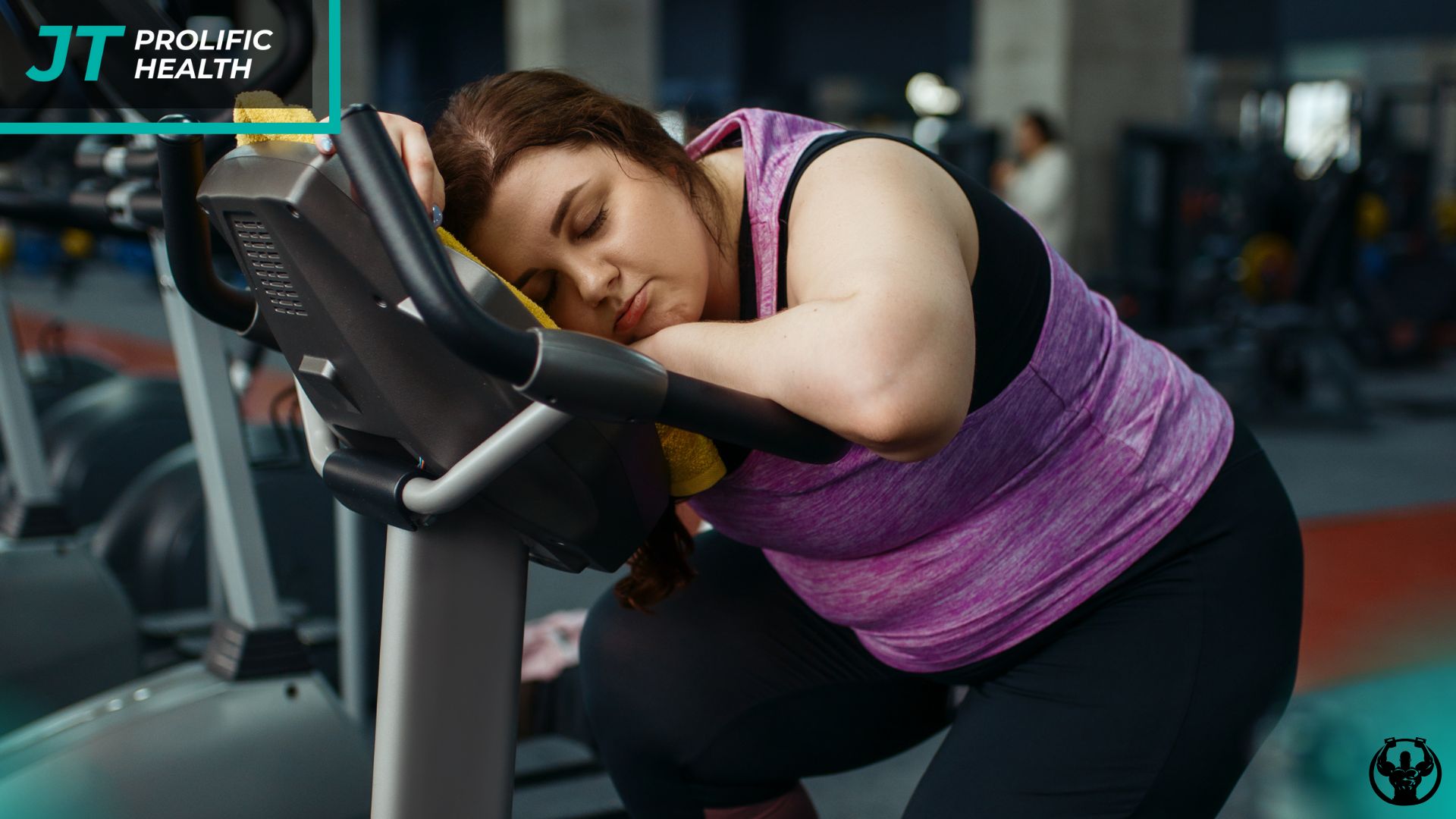Sleep quality has become one of the most pressing health concerns for Vancouver residents, with studies showing that nearly 40% of Canadians struggle with sleep-related issues. The bustling urban lifestyle, work stress, and screen time contribute to a growing epidemic of poor sleep that affects everything from cognitive function to immune system strength. While many people turn to sleep aids or meditation apps, an increasingly popular and scientifically-backed solution is emerging: personal training.
The connection between exercise and sleep quality isn’t just anecdotal—it’s deeply rooted in physiological science. When you engage in structured physical activity under professional guidance, your body undergoes a series of beneficial changes that directly impact your circadian rhythm, stress hormone levels, and overall sleep architecture. Personal trainers in Vancouver are uniquely positioned to address sleep issues because they understand how to tailor exercise programs that optimize both fitness goals and sleep quality simultaneously.
What makes personal training particularly effective for sleep improvement is the individualized approach that considers your specific lifestyle, work schedule, and sleep challenges. Unlike generic fitness programs or one-size-fits-all solutions, a qualified personal trainer can design exercise protocols that work with your body’s natural rhythms rather than against them. This personalized strategy becomes especially important in a city like Vancouver, where varying work schedules, seasonal light changes, and urban stressors create unique sleep challenges for residents.
The science behind exercise-induced sleep improvement involves multiple biological pathways. Regular physical activity helps regulate cortisol levels, increases the production of sleep-promoting hormones like melatonin, and creates the physical fatigue necessary for deep, restorative sleep. However, the timing, intensity, and type of exercise all play crucial roles in determining whether your workout will enhance or hinder your sleep quality. This is where professional guidance becomes invaluable—personal trainers understand these nuances and can create programs that maximize sleep benefits while avoiding common pitfalls that might disrupt your rest.
Key Takeaways
For additional context, see this comprehensive guide.
- Exercise timing significantly impacts sleep quality: Morning and afternoon workouts generally promote better sleep, while late evening high-intensity sessions can be disruptive. Personal trainers help optimize workout scheduling based on your circadian rhythm and lifestyle demands.
- Strength training provides unique sleep benefits: Resistance exercises create the ideal combination of physical fatigue and hormonal changes that promote deep sleep cycles. The muscle recovery process during sleep also enhances overall rest quality.
- Stress reduction through exercise directly improves sleep: Regular physical activity under professional guidance helps manage cortisol levels and provides healthy outlets for daily stress, creating better conditions for restful sleep.
- Consistency matters more than intensity: A well-structured, moderate exercise routine performed regularly yields better sleep improvements than sporadic high-intensity workouts. Personal trainers ensure sustainable programming that supports long-term sleep health.
- Individual factors require personalized approaches: Age, fitness level, work schedule, and existing sleep issues all influence how exercise affects sleep. Professional trainers assess these factors to create customized programs that address specific sleep challenges.
- Recovery and sleep work synergistically: Proper exercise recovery enhances sleep quality, while better sleep improves workout performance and results. This positive cycle accelerates both fitness and sleep improvements when managed professionally.
Understanding the Exercise-Sleep Connection

For additional context, see detailed information on this topic.
The relationship between physical activity and sleep quality operates through several interconnected biological mechanisms that personal trainers leverage to help Vancouver clients achieve better rest. At the cellular level, exercise triggers the release of adenosine, a chemical that accumulates throughout the day and promotes sleepiness. When you engage in structured physical activity, you accelerate adenosine production, creating a stronger drive for sleep when bedtime arrives.
Temperature regulation plays another crucial role in this process. During exercise, your core body temperature rises significantly, and the subsequent cooling period that follows mimics your body’s natural preparation for sleep. Personal trainers understand how to time workouts to maximize this temperature effect, ensuring that the cooling phase aligns with your desired bedtime. This physiological response is particularly beneficial for people who struggle with sleep onset, as the temperature drop signals to your brain that it’s time to rest.
The hormonal changes induced by regular exercise create an optimal environment for quality sleep. Physical activity reduces cortisol levels, the stress hormone that can keep you alert and anxious when elevated. Simultaneously, exercise promotes the release of endorphins and other mood-regulating chemicals that help create the mental state conducive to restful sleep. These hormonal adjustments don’t happen overnight, which is why consistency in your exercise routine becomes so important for sustained sleep improvements.
Personal trainers also recognize that different types of exercise affect sleep in varying ways. Aerobic activities like cycling or running can improve sleep efficiency and reduce the time it takes to fall asleep, while resistance training enhances deep sleep phases where the most restorative processes occur. Understanding these distinctions allows trainers to create balanced programs that address specific sleep issues their clients face.
The Science of Exercise Timing for Optimal Sleep


For additional context, see our in-depth resource.
Timing your workouts strategically can make the difference between exercise that enhances your sleep and exercise that disrupts it. Research consistently shows that the circadian rhythm, your body’s internal clock, responds differently to physical activity depending on when it occurs. Personal trainers in Vancouver understand these timing principles and use them to optimize their clients’ exercise schedules for maximum sleep benefit.
Morning workouts offer unique advantages for sleep quality by helping to establish a strong circadian rhythm. When you exercise in the morning, especially with exposure to natural light, you’re essentially setting your biological clock for the day. This early activity promotes alertness during daytime hours and helps ensure that you’ll feel naturally tired when evening arrives. For Vancouver residents dealing with the city’s variable daylight patterns, morning exercise becomes particularly valuable for maintaining consistent sleep-wake cycles throughout the year.
Afternoon exercise sessions, typically between 2 PM and 6 PM, often provide the sweet spot for sleep enhancement. During this time window, your core body temperature is naturally higher, making it an ideal time for more intense workouts. The subsequent temperature drop that occurs several hours later aligns perfectly with your body’s preparation for sleep. Many personal trainers recommend this timing for clients who want to incorporate higher-intensity training while still optimizing sleep quality.
Evening workouts require more careful consideration and professional guidance to avoid sleep disruption. While light to moderate exercise in the early evening can be beneficial, high-intensity training within three hours of bedtime can elevate core temperature, heart rate, and stress hormones in ways that interfere with sleep onset. However, this doesn’t mean evening exercise is off-limits—it simply requires the expertise of a qualified trainer who can design appropriate low-intensity routines that promote relaxation rather than stimulation.
The individual variation in chronotype—whether you’re naturally a morning person or night owl—also influences optimal exercise timing. Personal trainers assess these individual differences and adjust workout schedules accordingly. For detailed guidance on finding qualified professionals who understand these nuances, you can explore our comprehensive guide to selecting the right fitness expert for your needs.
Strength Training’s Unique Impact on Sleep Quality


Resistance training offers distinct sleep benefits that differ from cardiovascular exercise, making it an essential component of any sleep-focused fitness program. When you engage in strength training, you create microscopic damage in muscle fibers that requires repair during sleep, particularly during the deep sleep phases. This repair process not only builds stronger muscles but also promotes longer, more restorative sleep periods as your body prioritizes recovery.
The hormonal response to strength training creates an ideal environment for quality sleep. Resistance exercises stimulate the release of growth hormone, which peaks during deep sleep phases and plays a crucial role in muscle recovery and overall restoration. This creates a positive feedback loop where strength training enhances the very sleep phases that optimize recovery from your workouts. Personal trainers leverage this relationship by designing progressive resistance programs that gradually increase the recovery demands, leading to corresponding improvements in sleep depth and duration.
Strength training also provides unique stress relief benefits that directly impact sleep quality. The focused concentration required during resistance exercises serves as a form of moving meditation, helping to clear your mind of daily worries and stressors. This mental reset is particularly valuable for Vancouver professionals who carry work stress into their evening hours. The physical fatigue from strength training, combined with the mental clarity it provides, creates optimal conditions for falling asleep quickly and staying asleep throughout the night.
The timing and intensity of strength training sessions require careful consideration to maximize sleep benefits. Personal trainers understand that while moderate resistance training can be performed later in the day without disrupting sleep, high-intensity strength sessions are best scheduled earlier to allow adequate recovery time. The key lies in finding the right balance between creating sufficient physical fatigue for sleep while avoiding overstimulation that could interfere with rest.
For Vancouver residents looking to incorporate strength training into their sleep improvement strategy, working with qualified professionals ensures proper program design and execution. Those interested in learning more about professional qualifications can find valuable information about what certifications to look for in a qualified trainer.
Stress Reduction and Sleep Through Personalized Exercise
Chronic stress represents one of the primary barriers to quality sleep for Vancouver residents, and personal training offers a powerful solution through targeted stress reduction strategies. When you engage in regular, structured exercise under professional guidance, you’re not just improving physical fitness—you’re actively rewiring your body’s stress response system. This rewiring process has profound implications for sleep quality, as elevated stress hormones like cortisol are among the most common culprits behind sleep disruption.
The stress-relieving benefits of exercise operate through multiple pathways that personal trainers can optimize through program design. Physical activity serves as a natural outlet for the fight-or-flight response that builds up during stressful days. When you channel this energy into productive exercise, you’re essentially completing the stress cycle that might otherwise keep you alert and anxious at bedtime. Personal trainers understand how to structure workouts that provide this stress release while building toward your fitness goals.
Different types of exercise provide varying levels of stress relief, and personal trainers can match these to your specific stress patterns and sleep challenges. High-intensity interval training might be perfect for someone who needs to burn off aggressive stress energy, while yoga-based strength training could be ideal for someone dealing with anxiety-related sleep issues. This individualized approach ensures that your exercise program addresses not just physical fitness but also the mental and emotional factors affecting your sleep.
The social support aspect of personal training also contributes significantly to stress reduction and improved sleep. Having a dedicated professional who understands your challenges and celebrates your progress provides emotional support that extends beyond the gym. This relationship helps reduce the isolation and pressure that often contribute to stress-related sleep problems. Many clients find that simply having someone to discuss their challenges with during training sessions helps them process stress more effectively.
Personal trainers also teach stress management techniques that complement the physical benefits of exercise. Breathing techniques learned during training can be applied at bedtime, and the confidence gained through fitness achievements often translates to better stress management in other life areas. For those interested in understanding how skill development in training translates to broader life benefits, our detailed article on skill acquisition in personal training provides valuable insights into this process.
Creating Sustainable Sleep-Promoting Exercise Routines
Sustainability represents the cornerstone of any successful exercise program designed to improve sleep quality. Many Vancouver residents start with ambitious workout plans that initially seem to help their sleep, only to find that they can’t maintain the intensity or frequency required. Personal trainers excel at creating realistic, progressive programs that build sustainable habits rather than short-term fixes. This approach ensures that sleep improvements continue long-term rather than disappearing when motivation wanes.
The key to sustainable sleep-promoting exercise lies in finding the minimum effective dose—the smallest amount of exercise that produces meaningful sleep improvements. Personal trainers assess your current fitness level, lifestyle constraints, and sleep challenges to determine this optimal starting point. They then gradually progress the program as your fitness improves and your sleep patterns stabilize. This methodical approach prevents the burnout and inconsistency that often derail well-intentioned exercise programs.
Habit formation plays a crucial role in creating lasting sleep improvements through exercise. Personal trainers understand the psychology of habit development and structure programs to maximize adherence. This might involve linking workouts to existing routines, choosing convenient training times, or breaking larger goals into smaller, achievable milestones. The consistency that results from strong exercise habits creates the regularity that your circadian rhythm needs to optimize sleep patterns.
Flexibility within structure represents another hallmark of sustainable sleep-focused exercise programs. Life in Vancouver brings varying demands—busy work periods, social commitments, weather changes—that can disrupt rigid exercise schedules. Personal trainers prepare clients for these variations by teaching adaptable workout strategies. Having backup plans for shorter workouts, home exercise options, or modified routines ensures that temporary disruptions don’t derail long-term progress.
The integration of recovery and active rest days into exercise programming also supports sustainability while enhancing sleep benefits. Personal trainers educate clients about the importance of rest in the adaptation process and help them understand that recovery days are productive parts of their program, not missed opportunities. This perspective helps prevent the overtraining that can actually worsen sleep quality and ensures that exercise remains a positive influence on rest patterns.
For Vancouver residents seeking expert guidance in developing these sustainable approaches, Prolific Health offers comprehensive strength training programs that prioritize both fitness goals and sleep quality. Our experienced trainers understand the unique challenges facing local residents and design programs that work with your lifestyle rather than against it.
Frequently Asked Questions
How quickly can I expect to see sleep improvements from personal training?
Most clients begin noticing initial sleep improvements within 2-3 weeks of starting a consistent exercise routine with proper guidance. However, significant and lasting changes typically develop over 6-8 weeks as your body adapts to the new activity patterns and stress levels.
What’s the best time of day to work out for better sleep?
Morning and early afternoon workouts generally provide the best sleep benefits, as they help establish strong circadian rhythms without interfering with evening wind-down routines. However, individual schedules and preferences may require adjustments that a personal trainer can help optimize.
Can evening workouts ever improve sleep quality?
Yes, but they require careful planning and appropriate intensity levels. Light to moderate evening exercise, such as gentle strength training or yoga, can actually promote relaxation and better sleep when properly structured by a qualified trainer.
How does strength training specifically help with sleep compared to cardio?
Strength training promotes deeper sleep phases through the muscle recovery process and provides unique hormonal benefits. While cardio improves sleep efficiency and reduces sleep onset time, resistance training enhances the restorative quality of sleep itself.
What should I do if exercise seems to make my sleep worse initially?
This can happen when workout timing, intensity, or type isn’t properly matched to your individual needs. A personal trainer can assess and adjust your program to ensure exercise enhances rather than disrupts your sleep patterns.
How important is workout consistency for sleep improvements?
Consistency is crucial for sleep benefits from exercise. Regular activity helps establish stable circadian rhythms and maintains the hormonal balance necessary for quality sleep. Sporadic intense workouts are less effective than moderate, consistent training.
Can personal training help with sleep issues related to stress and anxiety?
Absolutely. Personal training provides structured stress relief, teaches coping strategies, and builds confidence—all of which directly address anxiety-related sleep problems. The combination of physical activity and professional support is particularly effective for stress-induced sleep issues.
Do I need special equipment or gym access to use exercise for sleep improvement?
While gym access provides more options, effective sleep-promoting exercise can be done with minimal equipment. Personal trainers can design bodyweight routines or simple equipment-based programs that deliver sleep benefits regardless of your access to facilities.
Conclusion
The connection between personal training and improved sleep quality represents one of the most valuable yet underutilized strategies for addressing Vancouver’s growing sleep crisis. Through scientifically-informed exercise programming, stress reduction techniques, and individualized approaches, personal trainers offer a natural, sustainable solution to sleep problems that doesn’t rely on medications or temporary fixes. The evidence clearly demonstrates that regular, properly-structured physical activity can transform not just your fitness level but your entire sleep experience.
What sets personal training apart from generic exercise recommendations is the individualized approach that considers your unique lifestyle, stress patterns, and sleep challenges. Vancouver residents face specific pressures—from demanding work schedules to seasonal light variations—that require customized solutions rather than one-size-fits-all approaches. Personal trainers understand these local factors and can design programs that work with your reality rather than against it.
The investment in professional fitness guidance pays dividends far beyond the gym, extending into every aspect of your life through improved sleep quality. Better sleep enhances cognitive function, emotional regulation, immune system strength, and overall quality of life. When you consider these broader benefits, personal training becomes not just a fitness investment but a comprehensive health strategy that addresses one of the most fundamental aspects of human wellbeing.
For Vancouver residents ready to experience the sleep-enhancing benefits of professional fitness guidance, taking that first step toward working with a qualified trainer can transform both your nights and your days. The combination of expert knowledge, personalized programming, and ongoing support creates the optimal environment for achieving lasting improvements in both fitness and sleep quality.



